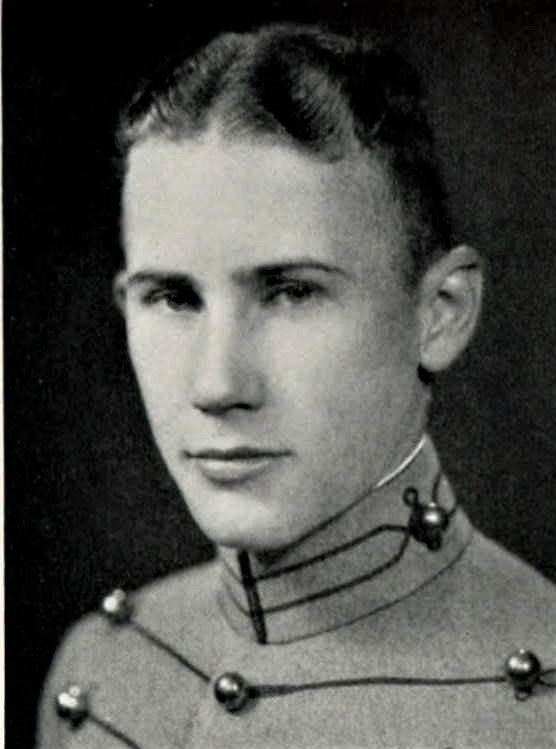Died as a prisoner of war.
From Find a Grave:
Son of Colonel Robert P. Glassburn and Anne Maxwell Moore Glassburn. Husband of Zelda M. Eggleston Glassburn. He graduated from the U.S. Military Academy at West Point, Class of 1932. He served with the Coast Artillery at Fort Mills in the defense of Corregidor. He was taken prisoner by the Japanese and died of wounds, starvation, and exposure while a prisoner at Moji, Kyushu, Japan. He was decorated with a Silver Star.
Major William D. Glassburn was held as a POW in the Philippine Islands. In December 1944, he was boarded onto the Oryoku Maru for transport to Japan. The ship sailed on December 13th and came under attack from American planes on December 14th. As evening approached, the attack was called off. The next day the planes returned and continued the attack. When the pilots saw the large number of men climbing from the ship’s holds, they realized the ship was carrying POWs and called off the attack. After the POWs were off the ship, the attack resumed and the ship was sunk by American planes at Subic Bay, Philippine Islands, on December 15, 1944. The surviving POWs were boarded onto the Enoura Maru which sailed on December 27th and reached Takao, Formosa, by the New Year. While docked it was bombed by American planes on January 9, 1945, killing many of the POWs. The surviving POWs were boarded onto the Brazil Maru which sailed on January 13th and reached Japan on January 29, 1945.
Cenotaph: Arlington National Cemetery
Silver Star Citation:
The President of the United States of America, authorized by Act of Congress July 9, 1918, takes pleasure in presenting the Silver Star to Major (Coast Artillery Corps) Robert Douglass Glassburn (ASN: 0-18730), United States Army, for gallantry in action against the enemy serving as Commanding Officer of Battery K, 60th Coast Artillery Regiment (Anti-Aircraft), in action in the Philippine Islands. From 29 December, 1941 to 6 May 1942, Major Glassburn commanded Battery K of his Regiment at Fort Mills. Philippine Islands. During the above period combat conditions were practically continuous and frequently severe. Due to limitations of anti-aircraft armament, enemy planes were able to release their loads before coming within effective range of gun fire. Habitually, also enemy artillery opened fire on an antiaircraft battery whenever attacking planes approached its maximum range. Consequently, in order to attack planes, batteries were often compelled to execute their fire under a barrage and while bombs were descending. On all such occasions Major Glassburn remained in the open at his battery position, assisting and directing his men. By his calmness and courageous behavior in action and disregard for personal safety he inspired them to stand by their guns and concentrate on their duties. By his daring and gallant conduct under fire, Major Glassburn reflected great credit upon himself and the military service.
Source of information: findagrave, valor.militarytimes.com

PRIVATE CITIZENS SUPPORTING AMERICA'S HERITAGE
American
War Memorials Overseas, Inc.
War Memorials Overseas, Inc.
Glassburn Robert Douglass
Name:
Robert Douglass Glassburn
Rank:
Major
Serial Number:
0-018730
Unit:
60th Coast Artillery Regiment
Date of Death:
1945-01-30
State:
Delaware
Cemetery:
British War Cem., Yokohama, Japan (CWGC)
Plot:
AA-COM
Row:
G-URN
Grave:
2
Decoration:
Silver Star with Oak Leaf Cluster
Comments:
